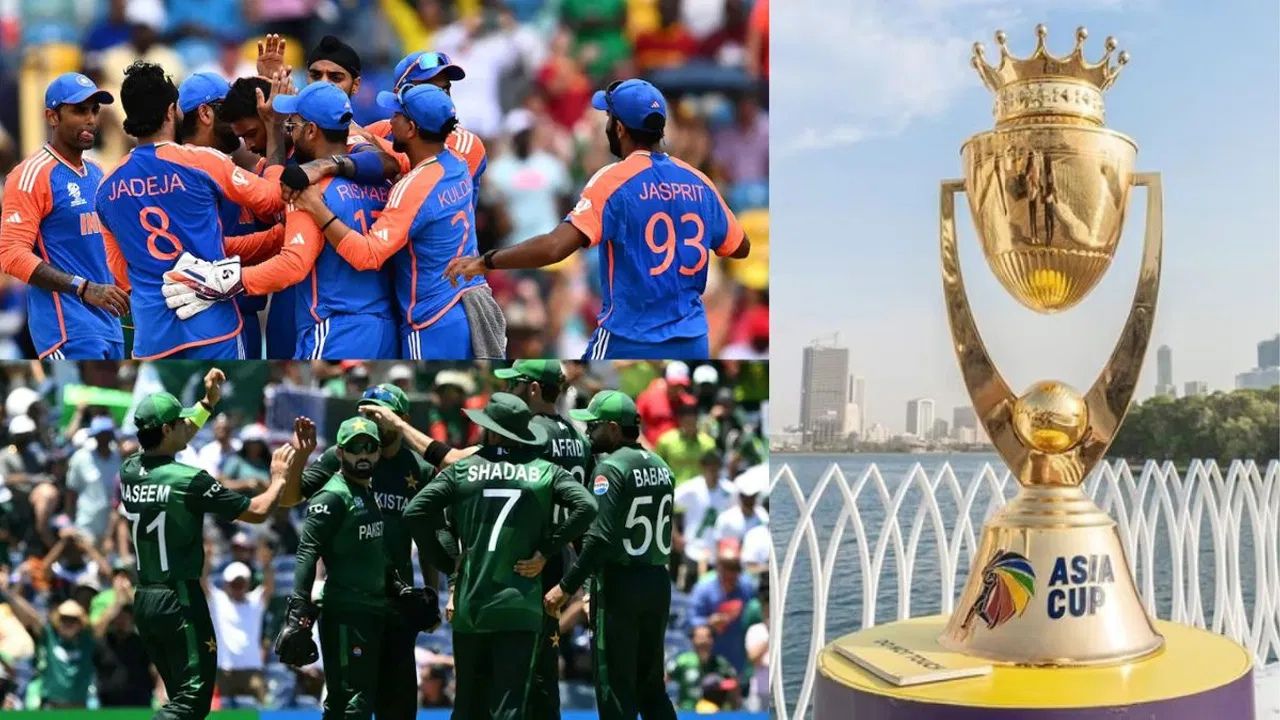The Asia Cup 2025 final between India and Pakistan in Dubai ended in a historic victory for India, but what followed after the match left the cricketing world in shock. For the first time in recent memory, the winning team lifted no trophy, wore no medals, and celebrated empty-handed on the presentation stage. The unusual sight left fans and experts asking the same question: why did India refuse to take the Asia Cup trophy?
India’s Unconventional Celebration

After defeating Pakistan in the final, the Indian team walked onto the podium as champions. Normally, this moment is filled with confetti, smiles, and the victorious captain holding the gleaming trophy high for the cameras. However, captain Suryakumar Yadav stood on the dais without the trophy, flanked by his teammates who also chose not to wear their winners’ medals.
Instead of the usual post-match joy, India’s celebration looked symbolic, subdued, and defiant. Players applauded the fans, clicked pictures together, and hugged each other, but the absence of the trophy was impossible to ignore.
The Reason Behind the Boycott
The unusual act was not accidental. According to team sources, the players collectively decided to boycott receiving the trophy because of who was handing it over — Mohsin Naqvi, the Pakistan Cricket Board (PCB) chief and current president of the Asian Cricket Council (ACC).
Naqvi’s dual role as a government minister in Pakistan and his controversial social media post during the tournament had sparked tensions before the final. The Indian players were reportedly unhappy about the idea of taking the trophy from him, seeing it as both a political and symbolic gesture.
By refusing to collect the prize, the Indian team wanted to make a quiet but powerful statement. They accepted the victory, but not the presentation.
Political and Cricketing Context
The Asia Cup was more than just a cricket tournament this year. It marked the first time India and Pakistan met on the cricket field after the Pahalgam terror attack in April and the cross-border hostilities in May. Emotions were already running high between the two nations.
India’s refusal to collect the trophy from Naqvi reflected these underlying tensions. For many, it was a symbolic protest against Pakistan’s political and cricketing leadership, rather than against the sport itself.
Players’ Voices
Indian captain Suryakumar Yadav later confirmed the team’s stance. He explained that the players wanted to celebrate their win with the fans, but did not feel comfortable accepting the trophy from Naqvi.
“We respect the game, we respect the tournament, but certain things are bigger than cricket. The boys decided we will celebrate on our terms,” Suryakumar said in the post-match press briefing.
Other players echoed the sentiment privately, emphasizing that the decision was unanimous and not forced by management.
gibih.com | totobetspin.com | feelissimo.com
voyoyi.com | DadPhotos.com
Reaction from Fans and Experts
The dramatic scene left fans divided. Indian supporters praised the team for standing their ground and making a powerful statement without speaking a word. For them, the sight of the team celebrating without the trophy was even more memorable than the traditional medal ceremony.
On the other hand, critics argued that cricket should remain free of political disputes and that the players should have accepted the trophy as a mark of respect for the sport, if not for the presenter.
Former cricketers also weighed in, with some calling it a bold move and others questioning whether such acts would deepen divisions between the two cricket boards.
Pakistan’s Response
The PCB expressed disappointment over India’s decision. In an official statement, the board claimed that sports should serve as a bridge between nations, not a battleground for politics.
Naqvi himself did not comment directly on the boycott but was seen leaving the stage immediately after the Indian team’s refusal. His silence has been interpreted in different ways — either as acceptance of the protest or as an unwillingness to escalate the controversy.
A Rare Sight in Sports History
Instances of teams refusing trophies are extremely rare in international sports. Medals and trophies are seen as the highest recognition of sporting achievement, and rejecting them is considered a strong symbolic gesture.
India’s decision will likely be remembered as one of the most unusual moments in cricketing history, joining a short list of similar acts in world sport where players have prioritized principles over formal celebrations.
The Bigger Picture
While the cricketing world debates whether India was right or wrong in its actions, one thing is clear: the Asia Cup 2025 final was not just about cricket. It was about symbolism, pride, and the deep complexities of India-Pakistan relations.
By refusing to hold the trophy, the Indian team shifted the focus from the glittering prize to the political undertones surrounding the event. It was a reminder that sports, especially in the subcontinent, can never be fully separated from the larger realities of politics and diplomacy.
Looking Ahead
The incident will have long-term implications for Asian cricket. The Asian Cricket Council may be forced to rethink how tournaments are managed, particularly when leadership overlaps with political responsibilities. There may also be calls for neutral figures to handle prize distributions in future tournaments to avoid similar controversies.
For the players, however, the Asia Cup 2025 will always be remembered as the tournament where they let their performance do the talking and chose principle over protocol in the aftermath.
Despite the absence of a trophy in the team photo, the victory was no less sweet for India. The players celebrated with their fans, their families, and each other, proving that sometimes the true joy of sport lies beyond the material symbols of success.